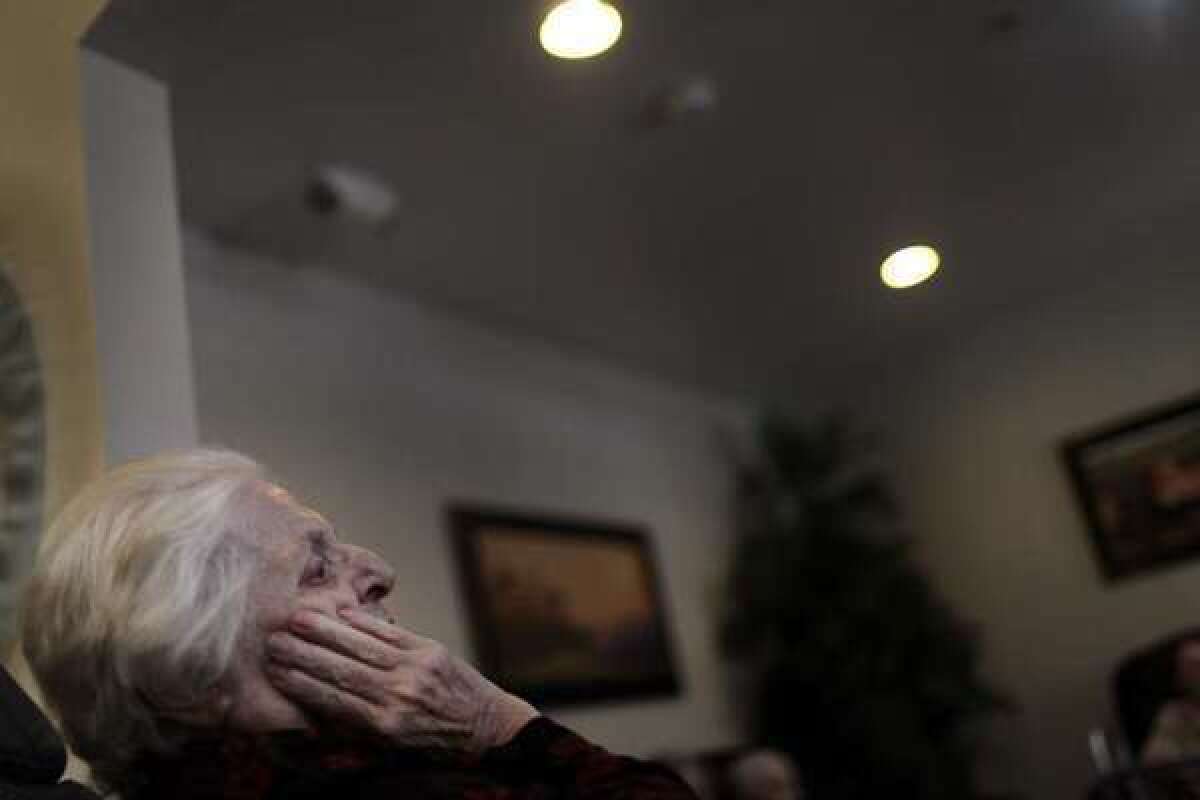Early dementia diagnosis poses issues for patients, caregivers

Getting an early diagnosis of dementia could lead to finding ways to cope — and it could mean feeling bereft at what the future holds. So do you want to know?
The early diagnosis of and intervention for Alzheimer’s and other dementia has become an increasing priority, but that means the patients and their informal caregivers are left facing many issues regarding their futures that need to be considered, researchers said Tuesday.
The researchers, from several British universities, reviewed 102 studies from 14 countries to consider the ramifications on patients and caregivers of a dementia diagnosis. They reported their findings in the journal Public Library of Science-Medicine.
Their findings, they said, suggest that research is needed into evaluating interventions after diagnosis. By 2050, more than 115 million people worldwide will be diagnosed with dementia, they noted.
The studies involved 1,145 people with dementia and 1,950 informal caregivers. They lived in 14 countries, though primarily in the United Kingdom and North America. While most of the people were white, the researchers said several studies focused on nonwhite people.
The researchers found three broad themes: barriers to early diagnosis; the impact of the diagnosis; and living with dementia.
Among the barriers to diagnosis was – not surprisingly – the stigma attached to dementia. The researchers said a trigger event, such as a hospitalization, often preceded diagnosis. Relatives often recognized a problem before the patient, the researchers said.
Post-diagnosis, patients had similar problems adjusting to be being a person with dementia – leading to anger, uncertainty and frustration, the researchers said. While many people struggled to preserve aspects of their former selves and relationships, the researchers said most patients and caregivers eventually reached a state of acceptance. Sometimes diagnosis came as a relief, validating suspicions.
Caregivers may be torn between protecting the loved one and promoting his or her independence; often as well the patient and family struggle to maintain the patient’s previous identity while assimilating the new one. Some people seek all the information possible, while others rejected it – feeling there was no point in knowing. “Better knowledge-sharing at the point of diagnosis was not always the solution,” the researchers said.
The researchers said they found “a clear need for great support after diagnosis, including advice, social and psychological support, access to community care and respite.”
Return to the Booster Shots blog.
Mary.MacVean@latimes.com
@mmacvean on Twitter




